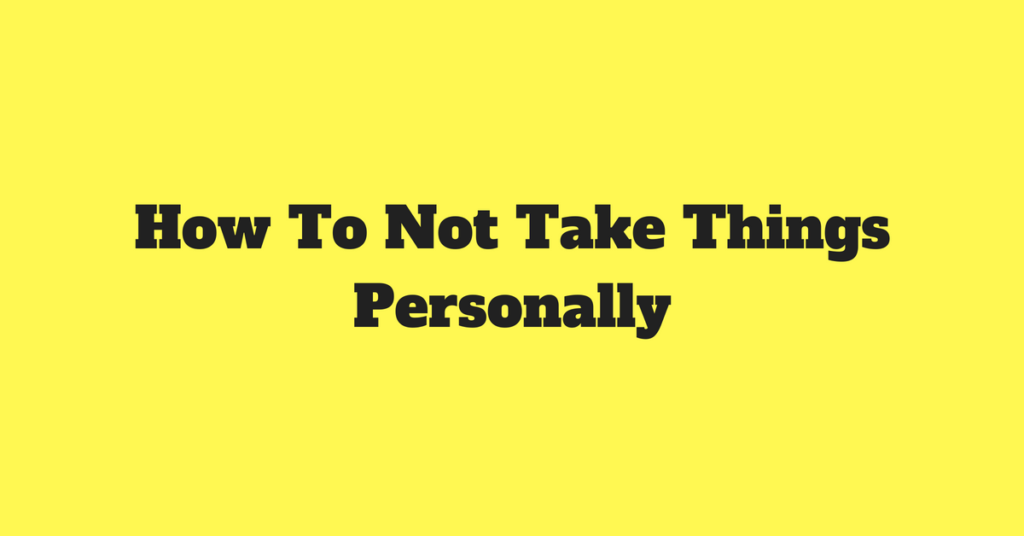In our personal and professional lives, we are bound to come across people or situations that offend us. It’s natural to feel hurt or angry when this happens, but it’s important to learn how to not take things personally. When we take offense, it can often lead to misunderstandings and conflict. In this article, we will explore what offense is, why people take offense, and how best to deal with it. We’ll also look at some self-help tips and tools that you can use to help you manage your reactions better. So read on if you want to find out more about how not to take things personally!
Contents
Understanding Offense
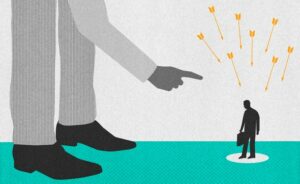
An offense is a feeling or emotion that is triggered by something that someone says or does. It can be caused by something that we deem to be insulting, hurtful, or offensive. Offense can also arise when we feel that our personal space has been invaded in some way, or when somebody challenges our beliefs or opinions.
When the offense is taken, it can manifest in a number of ways. Some people may become angry or defensive, while others may feel sad, anxious, or humiliated. In some cases, people may even react with violence.
NOTE: It’s important to note that not everyone who takes offense will react in the same way. Some people may only experience a mild reaction, while others may be deeply affected by even the smallest slight.
Types of Offense
There are different types of offense that we can experience, and these can vary depending on the situation. Some common types of offense include:
Hurt Offense: This is caused by something that hurts our feelings or damages our self-esteem. We may feel that the person who hurt us was deliberately trying to hurt us, or we may just feel upset and wounded by their words or actions.
Anger Offense: This type of offense is usually caused by something that we perceive as an attack on our character or beliefs. We may feel angry and defensive when somebody challenges us, or we may feel like we need to stand up for ourselves.
Injury Offense: This is the most serious type of offense, and is usually caused by something that feels like a personal attack. We may feel like we’ve been wronged or hurt in some way, and this can often lead to feelings of rage, revenge, or bitterness.
Reasons People Take Offense
The reasons why people take offense can vary greatly from person to person. Some people may be more prone to taking offense than others due to their personality type or past experiences. Some of the most common reasons include:
Feeling belittled: If we feel that the other person is making fun of us or treating us like we’re inferior, we may take offense. We may feel like they are not taking us seriously, or that they are not respecting us.
Feeling misunderstood: If we feel that the other person doesn’t understand us or is not listening to us, we may take offense. We may feel that our feelings or opinions are not being respected, or that we are not being heard.
Feeling violated: If we feel like the other person is invading our personal space, or is doing something that makes us uncomfortable, we may take offense. We may feel like we are not being respected, and that the other person is treating us in a way that we don’t like.
Feeling defensive: When we feel that our beliefs or opinions are being challenged, we may become defensive and take offense. We may feel like we need to protect ourselves from the other person’s comments, or we may just want to argue our point of view.
Prone Personality Types
There are certain personality types that are more prone to taking offense than others. These include:
The over-sensitive type: This is the person who takes offense very easily, and tends to react emotionally to any kind of slight insult. They may be thin-skinned and find it difficult to deal with criticism or disagreement.
The argumentative type: This is the person who loves to debate and argue their point of view. They often take offense when someone disagrees with them or challenges their beliefs.
The perfectionist type: This is the person who expects themselves to be perfect, and is very critical of themselves and others. They may take offense when they make a mistake, or when someone points out their flaws.
Evaluating Offense

Before taking any action in response to an offense, it’s important to take a step back and evaluate the situation. This means thinking about why we feel offended, and whether or not the other person’s actions were actually meant to harm us.
In Personal Life
If we’re feeling offended in our personal life, it’s important to ask ourselves some key questions:
- Was the comment or action directed at me specifically?
- Did the other person know that their words or actions would hurt me?
- Was the other person trying to harm me on purpose?
If we can’t answer yes to any of these questions, it’s likely that we’re taking offense unnecessarily. In this case, it might be best to try and let go of the feeling and move on.
However, if we feel that the other person’s actions were deliberately hurtful, it may be time to consider taking some form of action. This could involve confronting the person directly, or simply avoiding them altogether.
In Professional Life
If we’re feeling offended in our professional life, things can get a little more complicated. In some cases, it may be necessary to deal with the situation head-on, while in others it might be best to just let it go.
Some things to consider include:
- Did the comment or action come from a colleague or superior?
- Was the comment or action directed at me specifically?
- Does the other person have any power over my career?
- Is the comment or action part of a pattern of behavior?
If we can’t answer yes to any of these questions, it’s likely that we’re taking offense unnecessarily. In this case, it might be best to try and let go of the feeling and move on.
However, if we feel that the other person’s actions were deliberately hurtful, or that their behavior is causing a problem in the workplace, it may be time to consider talking to a professional. This could involve meeting with a therapist or speaking to an employment lawyer.
In Society
If we’re feeling offended by something that’s happening in society as a whole, it can be tough to know what to do about it.
Some things to consider include:
- Do I feel like this issue is directly affecting me?
- Is the offense something that I can avoid or ignore?
- What are my beliefs on this issue?
- Am I taking this personally, or am I offended on behalf of someone else?
If we can’t answer yes to any of these questions, it’s likely that we’re taking offense unnecessarily. In this case, it might be best to try and let go of the feeling and move on.
However, if we feel that the other person’s actions were deliberately hurtful, or that their behavior is causing a problem in society, it may be time to consider taking some form of action. This could involve protesting, signing a petition, or simply speaking out about our beliefs.
Weighing Offense
There’s no one-size-fits-all answer when it comes to taking offense, and what might be the right thing for one person may not be the right thing for another. It’s important to weigh all of the factors involved in each situation before deciding how to proceed. This includes considering our own feelings, as well as the feelings of the person who caused us offense.
When to Take Offense
There is no one answer to this question, as the decision of when to take offense will be different for each person. However, there are some general guidelines that can help you decide if it’s time to react:
- Do the actions or comments of the other person go against my personal values?
- Does the other person’s behavior make me feel uncomfortable, unsafe, or threatened?
- Did the comment or action come from a stranger?
- If we can’t answer yes to any of these questions, it might be best to let the situation slide.
However, if we feel that the other person’s actions were deliberately hurtful, or that their behavior is causing a problem, it may be time to consider taking some form of action. This could involve confronting the person directly, or simply avoiding them altogether.
When Not To Take Offense
There are also times when it might not be necessary to take offense, even if the actions or comments of the other person go against our personal values.
Some things to consider include:
- Was the insult slight accidental?
- Does the other person apologize?
- Do I have a history of taking offense easily?
If we can’t answer yes to any of these questions, it’s likely that we’re taking offense unnecessarily. In this case, it might be best to try and let go of the feeling and move on.
When Offense Is Serious
There are times when the offense can be very serious, and we may need to take action in order to protect ourselves or others.
We might need to take more actionable steps. This could involve reporting the person to authorities, speaking out about our beliefs, or joining together with others who share our views.
It’s important to remember that there is no one right way to deal with a serious offense. And that the best course of action will vary from situation to situation.
Offense In Media
When it comes to offense in the media, things can get a little tricky.
Some people might feel like they need to take a stand and react against every offensive thing they see, while others might choose to completely avoid anything that could potentially upset them.
Either way is perfectly valid, as long as we’re being mindful of our own personal values and feelings. It’s also important to remember that not everything we see in the media is true and that it’s ok to question what we watch or read.
Dealing With Offense
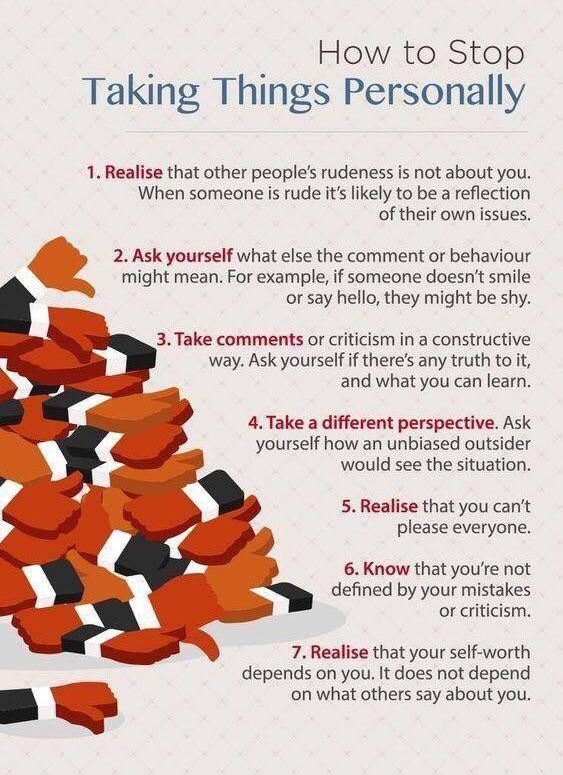
There’s no one answer to this question, as the decision of how to deal with the offense will be different for each person. It all depends on our personal values and feelings. However, there are some general guidelines that can help us decide what to do:
- If the offense is minor, we might choose to ignore it or simply let it go.
- If the offense is more serious, we might choose to confront the person directly.
- If the offense is very serious, we might choose to take legal action.
It’s important to listen to our feelings. If we’re feeling upset or angry, it might be best to process or express those feelings in a healthy way. This could involve talking to a friend, writing in a journal, or simply taking some time for ourselves.
Self-help Tips
There are a few things we can do to help us deal with the offense, both in ourselves and others.
Some self-help tips include:
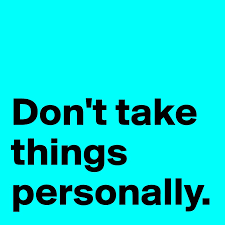
- Not letting the offense ruin our day or mood
- Communicating effectively, both verbally and nonverbally
- Being assertive and standing up for ourselves when we need to
- Accepting that we won’t be able to please everyone, and that’s ok
- Trying to stay calm and understanding that everyone makes mistakes
- Acknowledging our feelings, but also moving on when it’s time to do so
- Not taking things too personally and remembering that not everything is about us
- Developing a thicker skin, and knowing that not everyone will always agree with us
- Learning to recognize our personal values, and standing up for them when necessary
Self-help Tools
There are also a few tools we can use to help us deal with the offense, both in ourselves and others.
Some of these tools include:
- Meditation: This can help us calm down and focus on the present moment.
- Journaling: This can be a great way to express our feelings and thoughts, without having to worry about how others will react.
- Counseling or therapy: If we’re feeling overwhelmed or stuck, talking to a therapist can be incredibly helpful.
- Visualization: Imagining a situation in which we handle the offense in a positive way can help us feel more prepared and confident.
- Positive affirmations: Repeating positive statements about ourselves can help us feel more confident and empowered.
NOTE: There are times when it is necessary to take offense and act on it, while other times it might be best to let the situation slide. Whatever we decide to do, it’s important to stay true to ourselves and our values. And to remember that the most important thing is to do what feels right for us.
Talking To Professional
If we’re feeling overwhelmed by offense, it might be a good idea to talk to a professional. There are many different types of therapy available, and it’s important to find one that fits our needs.
Therapies
Some common therapies for dealing with offense include:
Cognitive Behavioral Therapy (CBT): This type of therapy focuses on changing the way we think about things.
Psychodynamic Psychotherapy: This type of therapy explores the roots of our problems and looks at how they might be affecting our current life.
Dialectical Behavioral Therapy (DBT): This type of therapy helps us learn how to deal with difficult emotions.
Family Systems Therapy: This type of therapy looks at how our family dynamics might be contributing to our offensive reactions.
NOTE: When it comes to finding the right therapist, it’s important to do our research and talk to a few different people before making a decision.
Case Study

In this case study, we’ll explore how one person dealt with an offensive situation.
John is a middle-aged man who recently retired from his job. He was always very active and enjoyed spending his time outdoors. However, since retiring, John has found himself feeling bored and restless.
One day, John saw an advertisement for a new outdoor activity center that was opening in his area. He decided to check it out and found that he really enjoyed the activities there.
However, one of the other members of the group took offense to something John said. She began yelling at him and accusing him of being a racist. John was taken aback by this and didn’t know how to respond.
The situation quickly escalated and the woman ended up calling the police. John was eventually able to talk to a professional who helped him deal with the situation.
Hearing From Experts
There are many different experts that we can turn to when it comes to offense.
Some of these experts include:
- Social Workers: Social workers can help us deal with the practical aspects of offense, such as filing a police report or finding support groups.
- Psychologists: Psychologists can help us understand our thoughts and feelings about the offense.
- Counselors: Counselors can provide us with one-on-one support and guidance.
- Lawyers: Lawyers can help us protect our rights and deal with the legal aspects of the offense.
NOTE: It’s important to remember that not all experts will be right for us. We should do our research before choosing one to work with.
Brain Activity
When it comes to taking offense, the brain can play a big role. Studies have shown that the part of the brain responsible for feelings of anger and aggression is activated when someone feels offended. This might explain why some people become so defensive when they feel attacked.
It’s important to note that this doesn’t mean we’re wrong to feel offended, only that our brains might be working against us in certain situations. As this can lead to us reacting in ways that might not be healthy or constructive.
NOTE: It’s important to remember that this is just a theory and more research is needed in this area.
Movies And Books
The offense can also be explored in movies and books. Some people might enjoy watching or reading stories that deal with the offense, while others might find it too upsetting.
Movies
Some examples of movies that deal with the offense include:
- The Help
- 12 Years A Slave
- Selma
Books
Some examples of books that deal with the offense include:
- To Kill a Mockingbird
- The Catcher in the Rye
- Persepolis
It’s important to remember that there is no one right way to approach this topic. Some people might want to avoid anything that could potentially upset them. While others might be interested in exploring the offense in more depth.
Conclusion
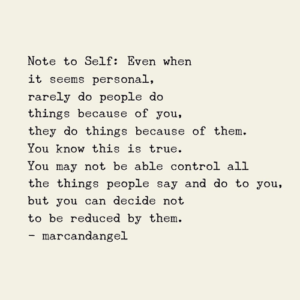
While there is no one right way to deal with the offense, it’s important to remember that we are in control of our own reactions. We can choose how to respond to the things that upset us, and we can always take a step back to assess the situation.
We should also remember that there is no one right way to deal with offense. Each person will need to find their own way of coping with this difficult emotion. And if we ever feel lost, we can always reach out for help.
A Word From Therapy Mantra
Your mental health — Your psychological, emotional, and social well-being — has an impact on every aspect of your life. Positive mental health essentially allows you to effectively deal with life’s everyday challenges.
At TherapyMantra, we have a team of therapists who provide affordable online therapy to assist you with issues such as depression, anxiety, stress, workplace Issues, addiction, relationship, OCD, LGBTQ, and PTSD. You can book a free therapy or download our free Android or iOS app.
